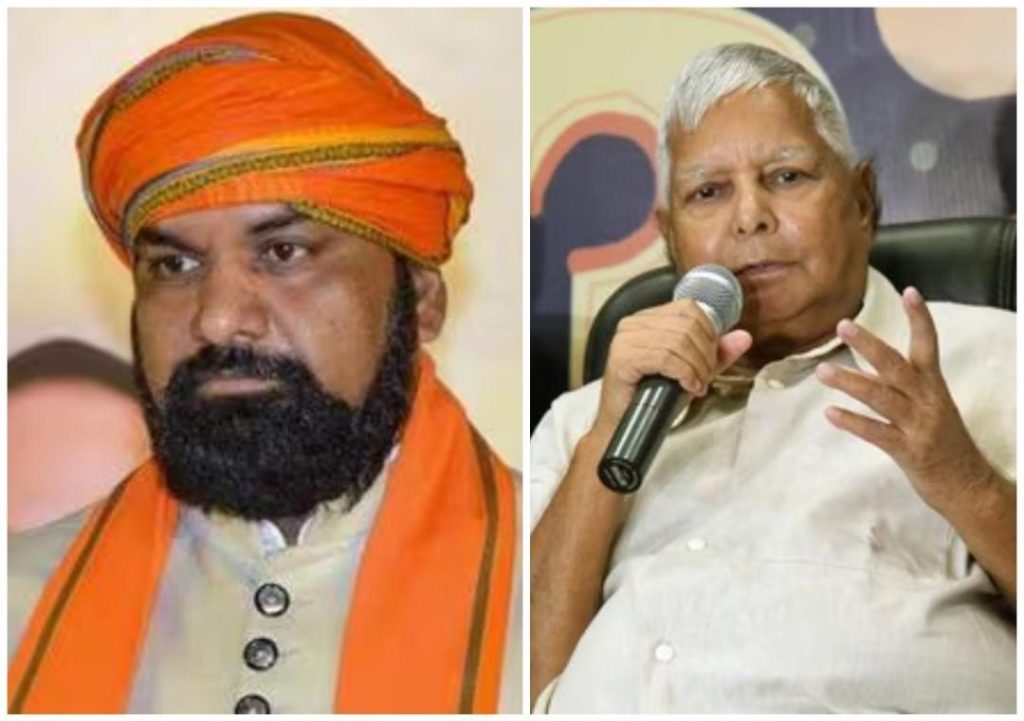
Title: Lalu is the ‘Gabbar’ of Bihar, he scares everyone: Bihar Dy CM
The upcoming assembly elections in Bihar have already begun to stir up a lot of controversy and heated debates. The latest salvo has been fired by Bihar Deputy Chief Minister Samrat Choudhary, who has made a scathing remark about RJD chief Lalu Prasad Yadav. Choudhary has alleged that a staggering 1.25 crore people left Bihar due to Lalu’s fear-mongering and has compared him to the infamous dacoit Gabbar Singh, saying that Lalu is the “Gabbar” of Bihar who scares everyone.
Choudhary’s statement has sent shockwaves across the political landscape in Bihar, with many interpreting it as a clear attempt to discredit Lalu Prasad Yadav and his party, the Rashtriya Janata Dal (RJD). The RJD has been a dominant force in Bihar politics for decades, and Lalu Prasad Yadav is widely regarded as one of the most influential leaders in the state.
The Bihar Deputy Chief Minister’s statement is significant because it comes at a time when the assembly elections are just around the corner. The elections are expected to be a closely contested affair, with several parties, including the ruling National Democratic Alliance (NDA), the RJD, and the Congress, vying for power.
Choudhary’s remarks about Lalu Prasad Yadav have also raised questions about the effectiveness of his leadership. The RJD has been in power in Bihar for several years, but the state has faced numerous challenges, including corruption, law and order issues, and economic stagnation. Lalu Prasad Yadav has been criticized for his handling of these issues, and many believe that his leadership has been ineffective.
The comparison of Lalu Prasad Yadav to Gabbar Singh is also noteworthy. Gabbar Singh is a fictional character from the 1975 Bollywood film Sholay, who is known for his ruthlessness and cunning. The character has become a cultural icon in India, symbolizing the fear and intimidation that he inspired in people.
Choudhary’s statement is likely to be seen as an attempt to tap into this cultural iconography and create a narrative around Lalu Prasad Yadav as a fearsome and intimidating leader. However, it is unclear whether this strategy will be effective in the long run, as Lalu Prasad Yadav has a strong following in Bihar and many people still admire him for his populist policies and his ability to connect with the common man.
The RJD has already hit back at Choudhary’s remarks, calling them an attempt to distract from the real issues facing the state. The party has accused the NDA government of being corrupt and incompetent, and has promised to bring about change and development to Bihar if elected.
The Bihar assembly elections are expected to be a closely contested affair, with several parties vying for power. The outcome is difficult to predict, but one thing is certain: the elections will be a crucial test of the popularity of the various parties and their leaders.
In conclusion, Choudhary’s statement about Lalu Prasad Yadav being the “Gabbar” of Bihar is significant because it highlights the intense competition and polarization that is building up in the run-up to the assembly elections. The statement is likely to be seen as an attempt to discredit Lalu Prasad Yadav and his party, but it remains to be seen whether this strategy will be effective in the long run.






